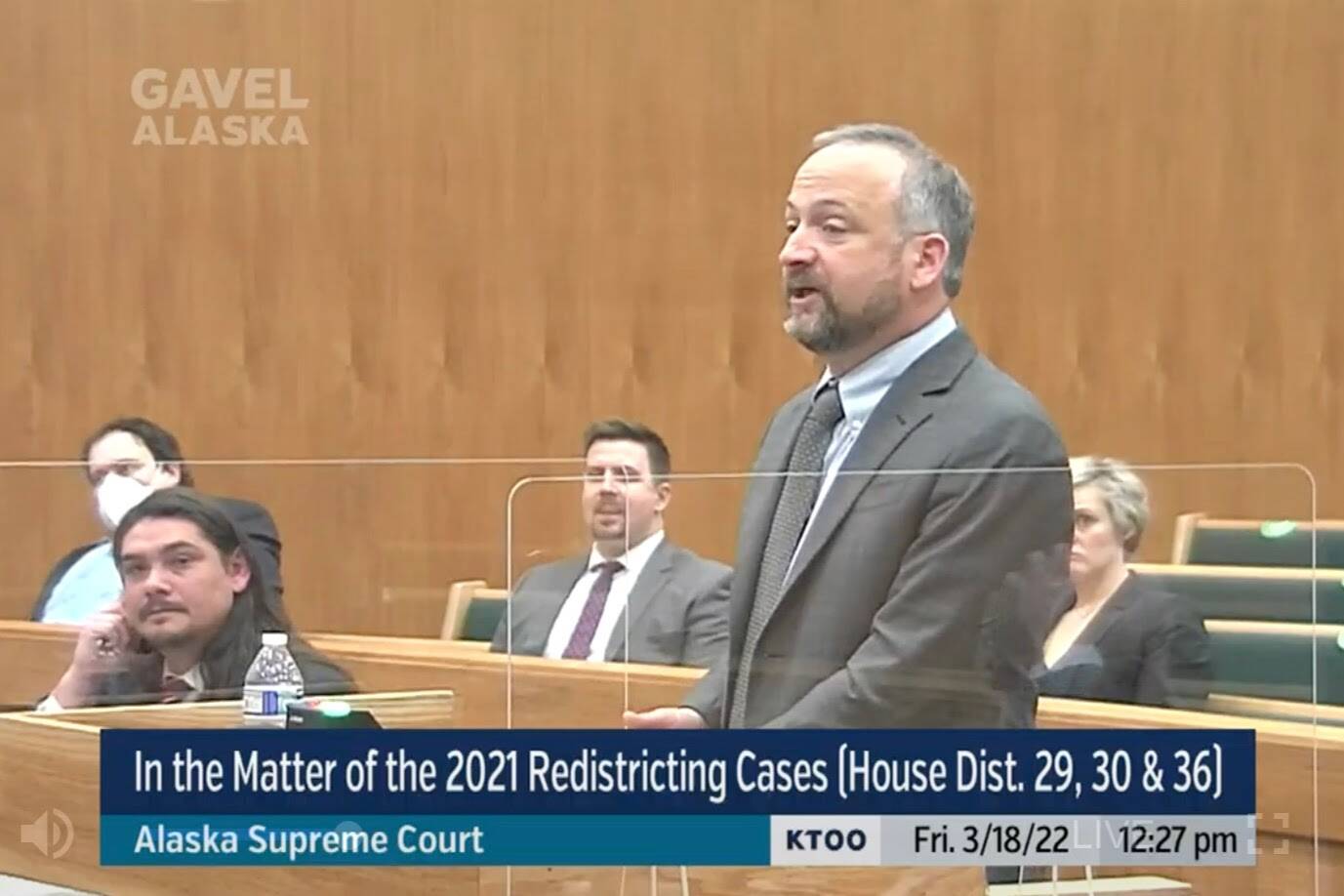The Alaska Supreme Court heard opening arguments in a trial over the state’s redistricting process and the court said it’ll have a decision by April 1.
The case before the court is a combination of four lawsuits filed against the Alaska Redistricting Board over its handling of the 2021 redistricting process. Redistricting happens after every census and is often the subject of litigation — every redistricting process in Alaska has ended in court.
The board announced its pairings in November and immediately drew criticism for its decision to place the East Anchorage district of Muldoon with nearby Eagle River in a single Alaska Senate seat. As drawn, the borders of the two House of Representatives districts for Muldoon and Eagle River do touch as required by the state constitution, but critics said those communities have little in common, and would decision would effectively give Eagle River another senator. Residents of East Anchorage quickly sued.
The City of Skagway also sued the board for placing the city in the same House district as Juneau’s Mendenhall Valley despite resident testimony overwhelmingly asking to be placed with downtown Juneau. The Matanuska-Susitna Borough and the City of Valdez both sued for being placed in the same House district and Calista Corp. — the Alaska Native Corporation for the Yukon-Kuskokwim region — for House districts in that area.
[Skagway man prepares to head to Ukraine to provide medical aid]
Anchorage Superior Court Judge Thomas Matthews ruled in February the board had not followed the constitutional process in Senate pairing for East Anchorage and for House district boundaries in Skagway, but dismissed claims from other plaintiffs. Following the decision, all parties that were ruled against appealed the decision.
The trial has been conducted on an accelerated basis to accommodate this year’s election — the deadline for candidate filings is June 1.
On Friday, attorneys for the various parties presented their arguments to the five-member Alaska Supreme Court.
Arguing for the State of Alaska, attorney Matthew Singer told justices that Matthews gave too much weight to public testimony in his decision and that the only requirement for Senate pairings in the state constitution is that the House districts touch.
“There’s no evidence that the board intentionally or invidiously discriminated against a neighborhood,” Singer said. “It paired two adjoining neighborhoods in Anchorage together.”
The East Anchorage residents who’ve sued the redistricting board argued the board sought to give additional legislative power to Eagle River.
In addition to litigating the board’s decisions for electoral districts, all of the plaintiffs have accused the board of violations of the Opens Meetings Act.
This is the last time lawyers will argue the case before the Supreme Court. As the hearing concluded Friday, Chief Justice Daniel Winfree thanked attorneys for working under such an accelerated timeline.
“At some point between now and April 1, you’ll hear from us,” Winfree said.
• Contact reporter Peter Segall at psegall@juneauempire.com. Follow him on Twitter at @SegallJnuEmpire.

